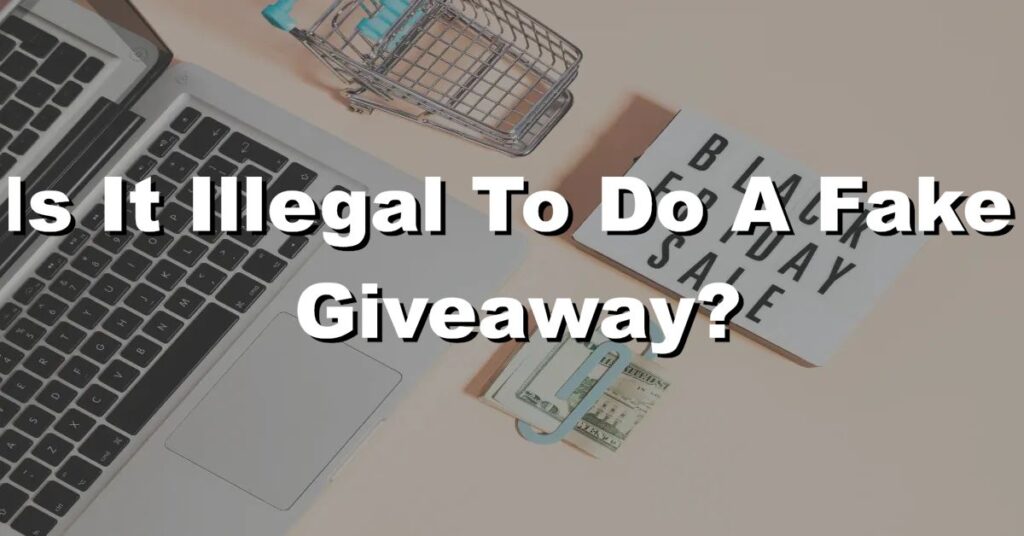Giveaways are a popular way for businesses to promote their products or services. However, some people may be tempted to do fake giveaways in order to gain more followers or to scam people out of their money.
In this article, we will explore whether it is illegal to do a fake giveaway, the consequences of doing so, and how to avoid being scammed.
What is a fake giveaway:
A fake giveaway refers to a deceptive or fraudulent promotional campaign in which individuals or businesses falsely claim to offer prizes or rewards to participants.
These giveaways are often designed to deceive people into providing personal information, generating website traffic, or increasing social media followers without the intention of actually fulfilling the promised prizes.
Legal implications of running a fake giveaway:
Running a fake giveaway can have serious legal consequences. It may be considered deceptive marketing or false advertising, violating consumer protection laws and regulations. Depending on the jurisdiction, these actions can result in penalties, fines, or legal actions brought by regulatory authorities or affected participants.
Additionally, it can damage a company’s reputation, leading to loss of trust and potential loss of customers.
How to avoid running a fake giveaway:
To avoid running a fake giveaway, it is essential to ensure transparency, honesty, and compliance with applicable laws and regulations. Here are some key steps to follow:
- Clearly state the terms and conditions: Provide clear and accurate information about the giveaway, including eligibility requirements, entry methods, prize details, and any associated costs.
- Fulfill promised prizes: Ensure that all announced prizes are actually awarded as described. Make sure the prizes are available and ready for distribution before launching the giveaway.
- Avoid misleading participants: Do not make false or exaggerated claims about the giveaway or use deceptive tactics to manipulate participation or engagement.
- Comply with legal requirements: Familiarize yourself with the laws and regulations regarding giveaways in your jurisdiction, including disclosure requirements, age restrictions, and any necessary permits or licenses.
Examples of fake giveaways that Actually Happened
- Phony Social Media Giveaways: There have been cases where scammers create fake social media accounts impersonating well-known brands or influencers, promising expensive products or trips as prizes. Participants are required to share personal information or pay a fee, only to find out later that the giveaway was fraudulent.
- Bogus Lottery or Sweepstakes Calls: Some individuals receive phone calls claiming they have won a large sum of money or a valuable prize, but in order to receive it, they need to provide personal information or pay a fee. These calls are typically scams attempting to deceive and defraud unsuspecting individuals.
- Fake Vacation Giveaways: Scammers may create websites or send emails claiming to offer free vacations or all-inclusive trips to popular destinations. Victims are often required to pay hidden fees, provide credit card details, or share personal information, but the promised vacation never materializes.
Conclusion
In conclusion, running a fake giveaway is not only unethical, but it can also be illegal in many cases. If you want to run a legitimate giveaway, make sure to follow the rules and regulations set by the platforms you’re using to host the giveaway and always be transparent with your audience about the terms and conditions of the giveaway.

